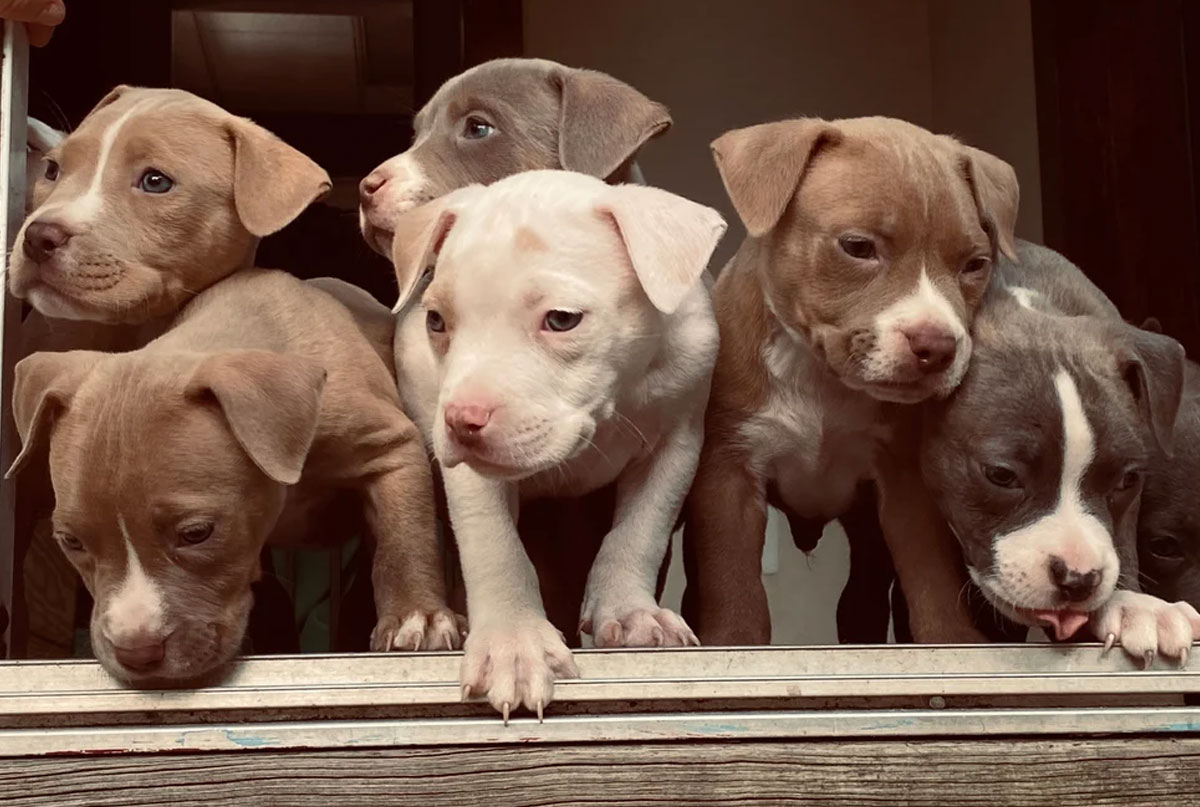However, the truth is that with proper breeding and training, Pitbulls can be loving, loyal, and incredibly devoted companions. If you are considering adopting a Pitbull or are already a Pitbull owner, this post is for you. Here, we will address how to properly care for a Pitbull, ensuring the safety and happiness of your dog and those around you.
Know Your Pitbull
Before adopting a Pitbull, it is essential to understand the nature of this breed. Pitbulls are muscular dogs full of energy with an incredible capacity to love and protect their family. They are known for their loyalty and intelligence, making them excellent companions. However, it is important to remember that each Pitbull is unique, with its own personality and needs.

History and Personality
Pitbulls were originally bred for hunting and protection, which explains their strength and determination. Today, they are known as working dogs, participating in various activities such as agility, obedience, and even therapy. Their personality can vary from dog to dog, but they are generally very affectionate, playful, and protective. With proper socialization, they can get along well with children, other dogs, and even cats.
Choosing a Pitbull
If you have decided that a Pitbull is the right dog for you, it is important to choose a responsible breeder or consider adopting a rescued Pitbull. Responsible breeders focus on the health and temperament of the dogs, avoiding genetic and behavioral problems. Rescued Pitbulls may have difficult backgrounds, but with patience and love, they can become wonderful companions.
Socialization is Key
Early socialization is crucial for any dog, especially Pitbulls. Exposing your Pitbull to different environments, people, and other animals from a young age will help develop balanced behavior and prevent aggressive reactions in the future. Socialization should not stop at puppyhood; it is an ongoing process that should be maintained throughout the dog's life.
Exposure to New Experiences
Take your Pitbull to parks, busy streets, friends' houses, and other places where they can encounter a variety of stimuli. This will help your dog get used to different sounds, smells, and sights, making them more confident and less likely to react aggressively or fearfully.
Interactions with Other Dogs
Arrange playdates with other dogs in controlled and safe environments. Obedience schools and socialization groups are great places for your Pitbull to learn to interact positively with other dogs. Always supervise these interactions to ensure they are safe and beneficial.
Positive Training
Using positive training methods is key to effectively educating your Pitbull. Rewarding good behavior with treats, affection, and praise is much more effective than punishing bad behavior. Pitbulls are intelligent dogs and respond well to clear and consistent commands.
Basic Commands
Teach basic commands like "sit," "stay," and "come" to ensure your Pitbull responds well in various situations. These commands are fundamental for the safety of your dog and those around them. Additionally, they help strengthen the bond between you and your Pitbull.
Mental Enrichment
Besides obedience training, it is important to provide mental enrichment for your Pitbull. Puzzle games, interactive toys, and trick training are great ways to keep your dog's mind active and engaged. A mentally stimulated Pitbull is a happy and well-behaved Pitbull.
Regular Exercise
Pitbulls are active dogs that need plenty of exercise to burn off their accumulated energy. Daily walks, runs, and backyard play are essential for your Pitbull's physical and mental health. A tired Pitbull is a happy and well-behaved Pitbull.
Types of Exercise
Vary the types of exercise to keep your Pitbull interested and motivated. Besides walks and runs, consider activities like agility, swimming, and fetch. These activities not only keep your Pitbull fit but also offer opportunities for socialization and training.
Duration and Frequency
The amount of exercise needed can vary from dog to dog, but in general, Pitbulls need at least an hour of intense exercise per day. Divide this time into several sessions throughout the day to prevent your Pitbull from getting bored or hyperactive.

Monitoring and Supervision
Never leave your Pitbull alone with small children or other animals without supervision. While socialization and training are effective, it is always better to prevent any incidents. Be cautious when introducing your Pitbull to new environments and people, ensuring they feel safe and comfortable.
Constant Supervision
Even if your Pitbull is well-socialized and trained, constant supervision is essential to ensure everyone's safety. Always be attentive to your dog's signs of discomfort or stress and intervene when necessary. Proper supervision can prevent accidents and ensure positive interactions.
Signs of Stress
Learning to recognize signs of stress in your Pitbull is crucial. These signs can include growling, barking, trembling, hiding, and more. If you notice any of these signs, remove your Pitbull from the stressful situation and provide a calm and safe environment.
Spaying/Neutering and Health
Spaying/neutering can help reduce aggressive behaviors and prevent health problems. Consult your veterinarian about the best time to spay/neuter your Pitbull. Additionally, keep vaccinations up to date and schedule regular check-ups to ensure your dog is healthy.
Benefits of Spaying/Neutering
Spaying/neutering can help reduce aggression, especially in males, and prevent health problems such as testicular tumors and prostate issues. Spayed females also have a lower risk of developing breast cancer and uterine infections.
Veterinary Care
Keeping vaccinations up to date is essential for your Pitbull's health. Regularly consult your veterinarian for check-ups and preventive exams. A balanced diet, regular exercise, and dental care are also crucial for your Pitbull's overall health.
Tips to Avoid Attacks
If you are a Pitbull owner, it is important to know how to avoid situations that could lead to attacks. Here are some tips:
Consistent Training
Continue training your Pitbull even after they have learned the basic commands. This reinforces good behavior and keeps your dog engaged and mentally stimulated. Regular practice of basic and advanced commands is essential to ensure your Pitbull is always ready to respond appropriately.
Continuous Socialization
Keep your Pitbull socialized throughout their life, not just during the puppy stage. Regularly expose them to new people, places, and situations to ensure they remain balanced and confident dogs.
Avoid Provocations
Teach children and others to respect your dog's space and avoid situations that might stress your Pitbull. Make sure everyone in your home knows how to interact correctly with your dog to prevent misunderstandings or aggressive behavior.
Recognize Signs of Stress
Learn to identify when your Pitbull is stressed or uncomfortable and remove them from the situation. Signs of stress can include growling, showing teeth, trembling, or trying to escape. Respecting your dog's limits is crucial to avoid incidents.
Proper Equipment
Use appropriate walking equipment, such as sturdy collars and leashes, to ensure complete control of your Pitbull during walks and other outdoor activities. Good equipment can make all the difference in preventing accidents.
Community Education
Educate your friends, neighbors, and community about your Pitbull's nature and how to interact with them safely. Awareness is a powerful tool to break stereotypes and promote harmonious coexistence.
Share Your Own Experiences
Raising a Pitbull can be an extremely rewarding experience when done responsibly. With proper socialization, positive training, and consistent care, Pitbulls can be loyal and loving companions. If you are a Pitbull owner or considering adopting one, follow these tips to ensure your dog's safety and happiness.
Share your own tips and experiences with Pitbulls on our social media using the hashtag #DicasDePitbull. Let's work together to demystify the reputation of this wonderful breed and show how they can be great pets.
People Also Ask
What is the original Pitbull?
The term "Pitbull" is generally associated with several breeds, including the American Pit Bull Terrier, American Staffordshire Terrier, and Staffordshire Bull Terrier. Among them, the American Pit Bull Terrier is often considered the "original Pitbull." This breed was developed in the 19th century in the United Kingdom and the United States, combining characteristics of Bulldogs and Terriers to create a strong, agile, and loyal dog.
What should I know before getting a Pitbull?
Before adopting a Pitbull, it is important to understand that they are energetic, intelligent, and extremely loyal dogs that require proper socialization and training. They need daily exercise and mental stimulation to prevent destructive behaviors. Additionally, it is crucial to be aware of local laws, as some areas have specific restrictions for Pitbull breeds.
What is the value of a pure Pitbull?
The price of a pure Pitbull can vary widely depending on factors such as lineage, breeder, and location. Generally, the price can range from R$ 1,000 to R$ 5,000. However, it is essential to choose a responsible breeder who prioritizes the health and temperament of the dogs, or consider adopting a rescued Pitbull, which can also be a more economical and ethical option.
What is a Pitbull's weakness?
A Pitbull's weakness can be their genetic predisposition to health problems such as hip dysplasia and skin allergies. Additionally, due to their strength and determination, Pitbulls can develop aggressive behaviors if not socialized and trained properly from a young age. It is essential to invest time and effort in your Pitbull's education and care to ensure they grow up healthy and balanced.

















Add comment